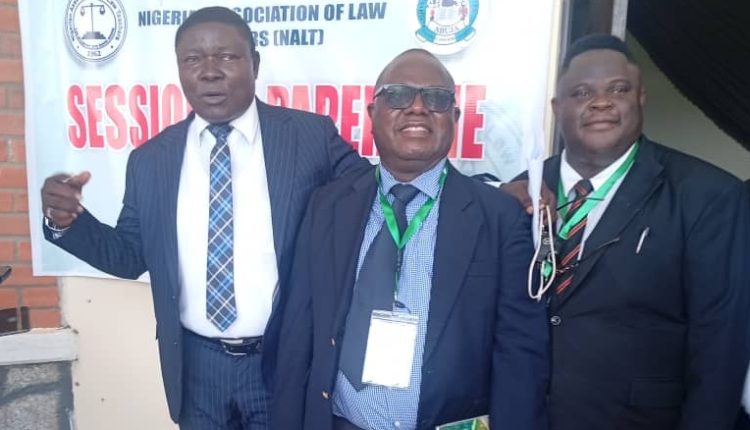Law teachers chart path for national development
|
Getting your Trinity Audio player ready...
|
The President of the Nigerian Association of Law Teachers (NALT), Prof. John Akintayo, has emphasised the pivotal role of law in driving national development and economic sustainability.
Akintayo made the remarks on Monday at the 56th Annual Conference of the Nigerian Association of Law Teachers (NALT) held at the University of Abuja.
The conference, themed “Law, National Development and Economic Sustainability in a Globalised World,” brought together law scholars from universities nationwide to explore the intersection of law, governance, and socioeconomic progress.
According to Akintayo, the gathering provides a platform for law teachers to examine how legal frameworks can enhance governance, economic reform, and accountability.
“There’s a strong nexus between law and development because law drives most development in society.
“Even when government uses policy to advance its agenda, such policies must have a legal framework to hold government accountable,” he stated.
He said the conference focused on electoral jurisprudence, the blue economy, and biotechnology, stressing that legal reforms in those areas were essential for Nigeria’s progress.
“Credible elections are central to democracy, national growth, and development. Electoral jurisprudence should not escape our attention,” Akintayo added.
On Nigeria’s coastal potential, he highlighted the need for stronger legal frameworks to harness opportunities in the blue economy while ensuring environmental sustainability.
He also noted that Nigerian law faculties were adapting to emerging global trends and technology, preparing students for a rapidly evolving professional landscape.
Prof. Joash Amupitan, Chairman of the Independent National Electoral Commission (INEC), highlighted the critical role of law and legal reforms in achieving credible elections and sustainable national development.
“Law is not merely a set of rules; it is the foundation upon which societies build progress.
“It guides ethical governance, fosters economic opportunities, and upholds citizens’ rights,” he said.
Amupitan stressed that discussions on the Electoral Act amendment were timely, offering an opportunity to strengthen Nigeria’s democracy.
“There is very little INEC can do in terms of policies and regulations if the law does not support us.
“I will work with the National Assembly to ensure enduring electoral laws Nigerians can be proud of,” he added.
He urged legal practitioners, academics, and policymakers to collectively promote the rule of law as a tool for social and political development. (NAN)



Comments are closed, but trackbacks and pingbacks are open.